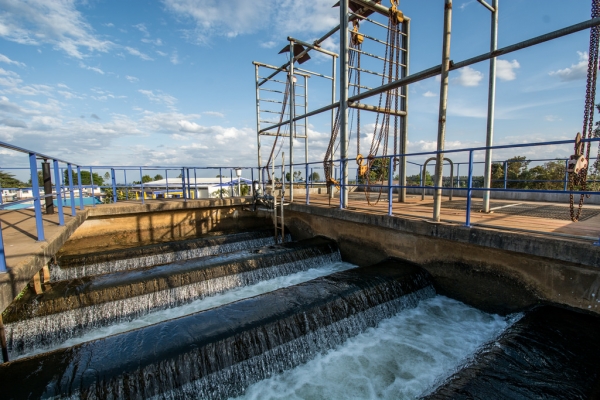Breaking new ground with water funds

Water is in high demand not just for agriculture but for everyday use. Schemes that offer payment for environmental services such as Water Funds are often proposed as a market incentive for managing demand in many sectors from forestry to natural resource management and water. However, payment for environmental services schemes have always been an elusive concept to put into practice. Finding the right incentives, institutional mechanisms and monitoring regimes while incorporating various stakeholders’ concerns have proven complicated.
One of the main challenges is the often-competing uses and users of water. In Peru, where WLE is working, water is used for recreation, agriculture, hydropower, as well as beverage and household consumption. How can these different demands be reconciled? Work that WLE is contributing to highlights the potential role Water Funds could have in improving water management, ecosystem functioning and livelihoods.
As Deborah Bossio, WLE Flagship Leader on Regenerating Degraded Ecosystems and Co-leader of Ecosystem Services and Resilience reflects, “I believe Water Funds are an exciting new way to work on ecosystem services. They really are an institutional innovation that enable the private sector, communities, governments and conservation agencies to come together to understand the costs and benefits of using different services and how they might be used in combination to meet multiple interests and needs.”
Peru passes law on reward mechanisms for ecosystem services
On June 11, 2014, the Peruvian congress passed a rewards for ecosystem services law. The law seeks to foster effective development of local, regional, and national initiatives that will sustainably protect and maintain ecosystem services, thereby providing economic, social, and environmental benefits to society.
WLE contributed to Peru’s law by providing technical advice as well as scientific evidence from a number of studies. As part of the process, WLE and the Consortium for the Sustainable Development of the Andes (CONDESAN) produced a video for policy-makers to explain the concept of practical benefit sharing mechanisms. WLE continues to support the Peruvian Ministry of Environment (MINAM) in formulating rules for implementation and communicating the law throughout the country through events organized by MINAM.
WLE also has provided support in response to the legal stipulation that an information system be developed to register ongoing initiatives related to the new law. WLE and the CGIAR Research Program on Forest Trees and Agriculture provided support to CIAT (the International Center for Tropical Agriculture) staff for the development of an information systems platform to promote follow up, target support and ensure learning from such initiatives. This system will also facilitate evaluation and impact assessment under the law. A novel part of this platform is that it is open access and will work across sectors by including climate change mitigation information. This is a big change from a previously siloed approach, and could have wide scale application across sectors, including donors and government agencies.
"The new law is important because it provides legitimacy to the [payment for environmental services] schemes and guidance for their practical implementation," said Bert De Bièvre, principal researcher at CONDESAN.
"The goal is to promote these mechanisms and overcome some of the legal bottlenecks that impede the actual implementation of these mechanisms in several watersheds of the country," said Marcela Quintero, CIAT's ecosystem services specialist. "With this law there is no doubt that the public sector can participate in these schemes and that those who provide ecosystem services can be rewarded for this."
Previous support for the work by CIAT and CONDESAN was provided under CGIAR Challenge Program on Water and Food. The project is now supported by WLE.

Facebook comments